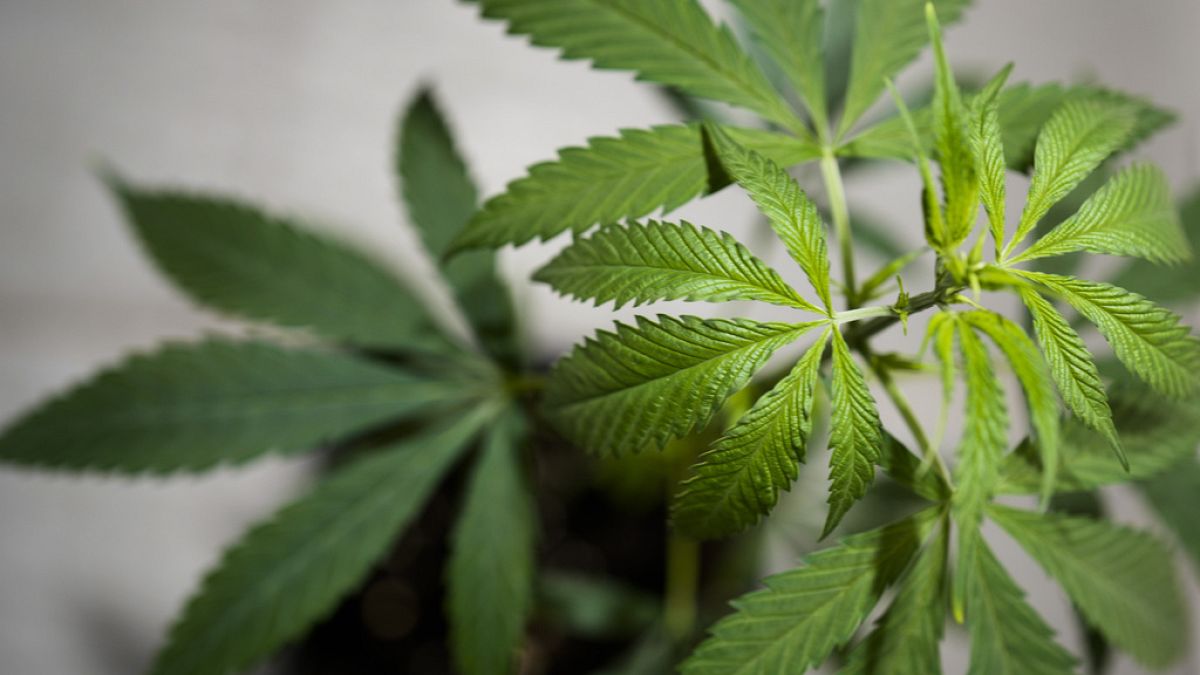Germany recently approved the limited consumption of cannabis, allowing the possession of the drug within certain restrictions. However, individuals looking to set up clubs to grow and share cannabis are facing significant challenges due to bureaucratic hurdles. Nico Schack, the CEO of Bunte Blüte, had hoped to establish a club in Berlin but is now considering moving to Brandenburg due to the slow and unclear licensing process in the capital city. The high requirements and slow approval process have left many potential club owners unsure and hesitant to proceed with their plans. As a result, consumers in Berlin, where cannabis use is higher than the national average, are facing difficulties accessing legal sources of the drug.
Despite the legalisation of cannabis possession, the black market for the drug continues to thrive, with residents in Berlin able to purchase it illegally in parks. This persistent illegal trade could potentially lead opponents of legalisation, such as the conservative Christian Democratic party (CDU), to push for a reversal of the law in the future. The CDU has expressed concerns about the increase in drug-related crime and the potential health risks for children and young people associated with legal cannabis consumption. CDU MP Tino Sorge has called the legalisation of cannabis a “huge mistake” and stated that reversing the law will be a priority for the party after the next election. The uncertainty surrounding the implementation of cannabis legalisation has left club owners like Schack feeling disappointed and unsure about the future of the industry.
Applicants looking to establish cannabis clubs in Germany are facing varying levels of bureaucracy, depending on the state where they are located. While the national laws permit the consumption of cannabis, individual states are responsible for handling the approval process for club licences. In Berlin, the local government has indicated that the health department should oversee these approvals, but a thorough cost analysis must be conducted first, leading to delays for applicants. The cumbersome process of setting up cannabis clubs is particularly challenging for residents of Berlin, where a significant proportion of the population has used cannabis at least once. The slow and complicated approval process could potentially drive consumers to illegal sources, undermining the intended goal of legalisation.
The challenges faced by applicants looking to establish cannabis clubs in Germany could have broader implications for the legal status of cannabis in the country. The continued prevalence of the black market for cannabis and concerns about associated criminal activity may fuel opposition to the current legalisation laws. The CDU, which is leading in the polls, has expressed intentions to reverse the legalisation of cannabis after the next election, citing concerns about public health and safety. Despite the potential benefits of legalisation, including a reduction in illegal drug trafficking, the slow and cumbersome licensing process for cannabis clubs may hinder the success of the new laws and push consumers back towards illegal sources.
The uncertainty surrounding the implementation of cannabis legalisation in Germany has left many individuals involved in the industry feeling disappointed and frustrated. Club owners like Nico Schack, who had been looking forward to taking advantage of the new laws, are now facing challenges due to bureaucratic obstacles and unclear approval processes. The slow and cumbersome nature of the licensing process for cannabis clubs has created uncertainty and hesitancy among potential club owners, leading to delays in establishing legal sources of cannabis for consumers. The legalisation of cannabis in Germany may face further challenges if the current trends of bureaucratic hurdles and illegal trade continue, potentially leading to a reversal of the laws in the future.
In conclusion, the legalisation of cannabis in Germany has brought both opportunities and challenges for individuals looking to establish cannabis clubs in the country. While the possession of cannabis has been made legal, the process of setting up clubs to grow and share the drug is plagued by bureaucratic hurdles and delays. The slow and cumbersome approval process for club licences has created uncertainty and frustration among potential club owners, potentially driving consumers back towards illegal sources. The challenges faced by applicants in establishing cannabis clubs could have broader implications for the future of cannabis legalisation in Germany, with opponents of the laws already expressing intentions to reverse them after the next election. Amidst the uncertainty and challenges, individuals like Nico Schack are left feeling disappointed and unsure about the future of the cannabis industry in Germany.











